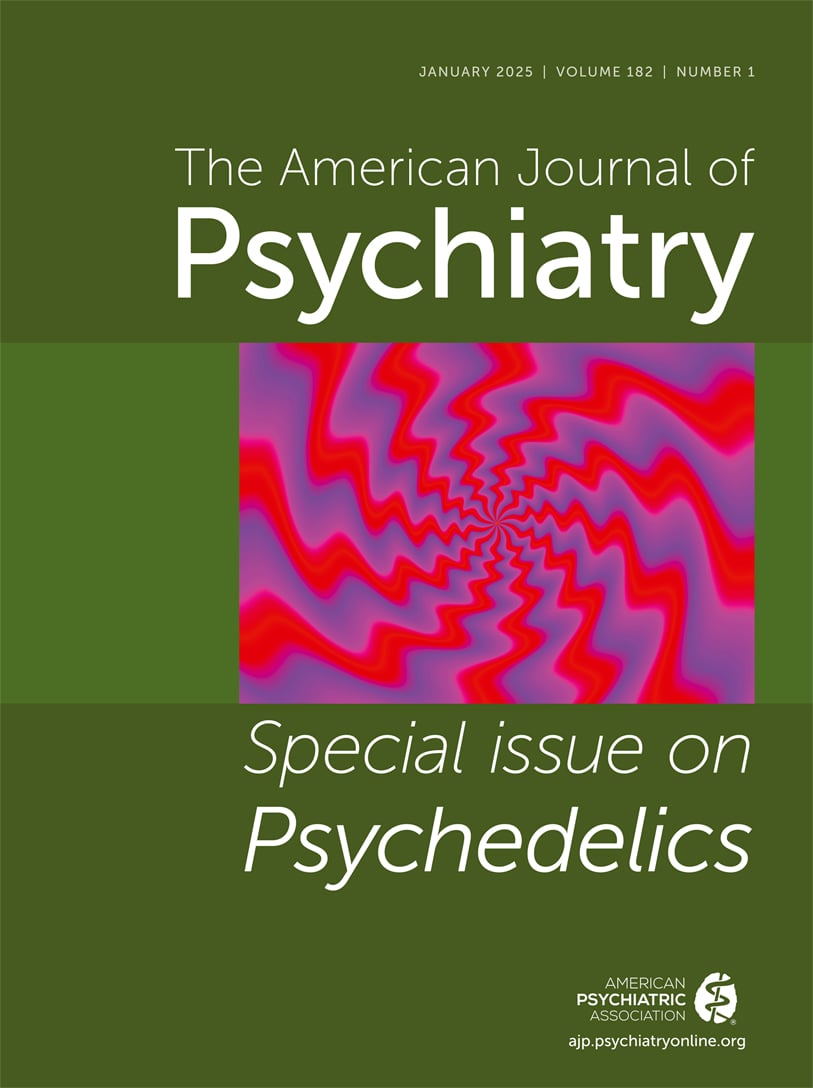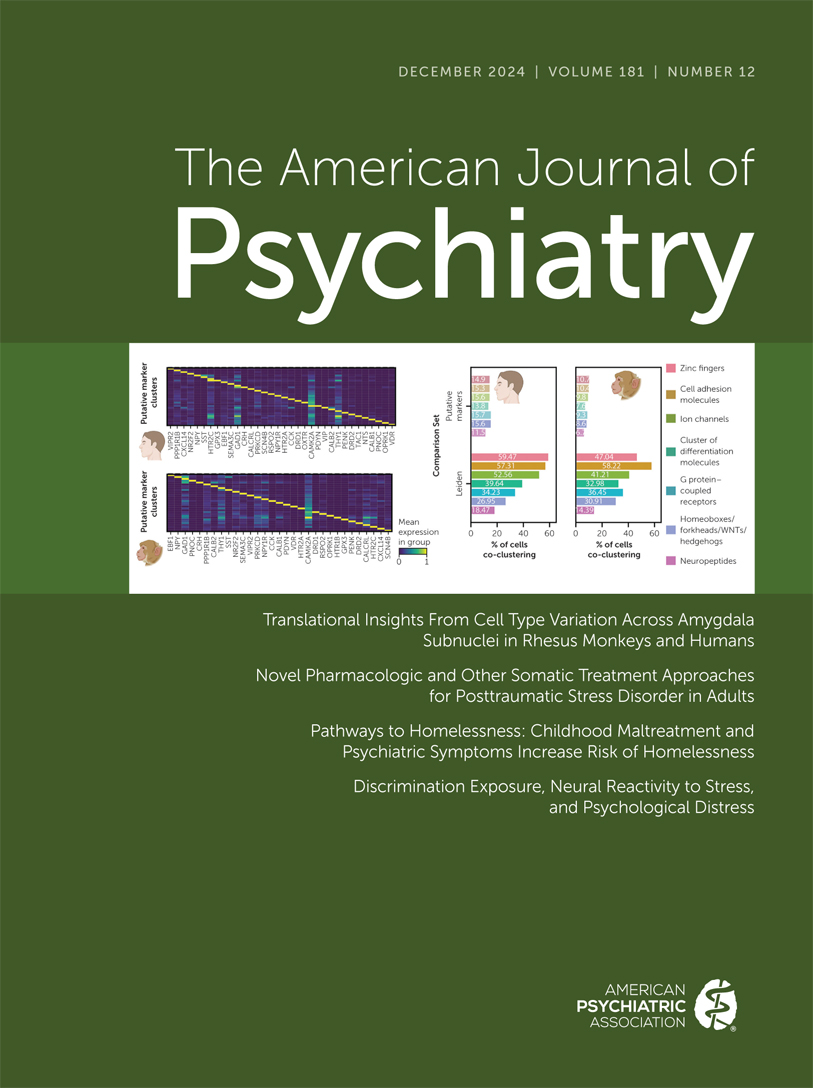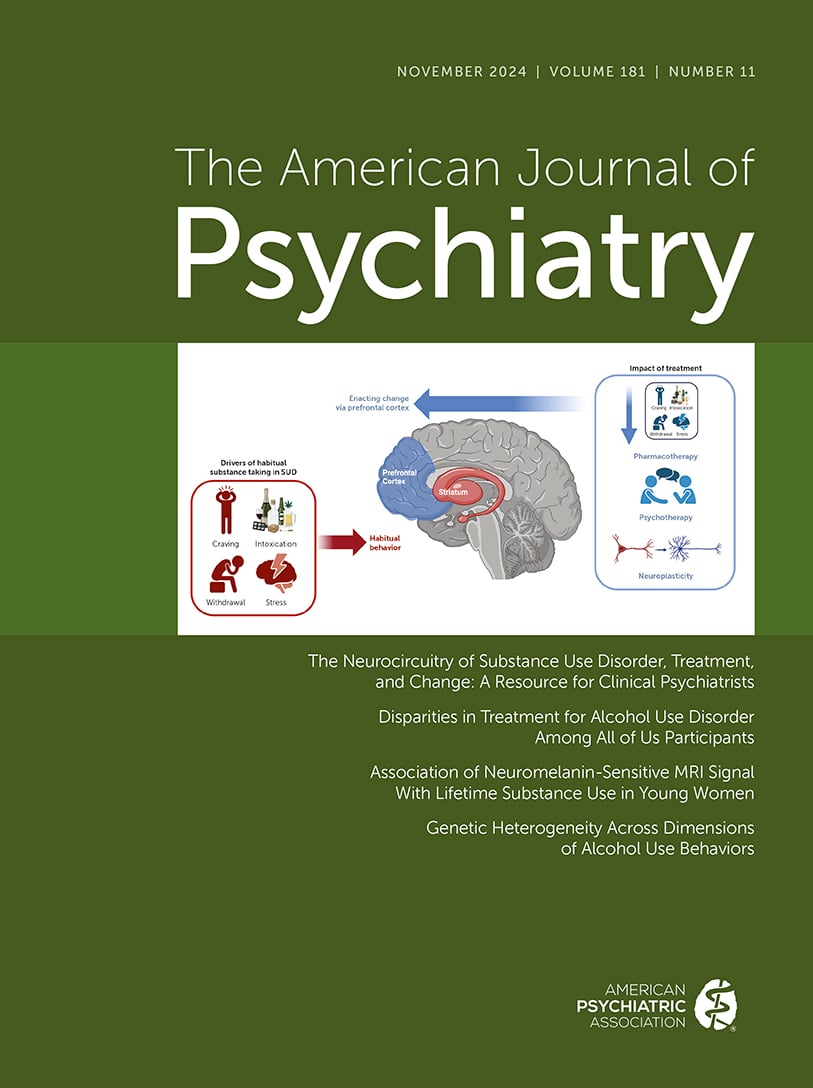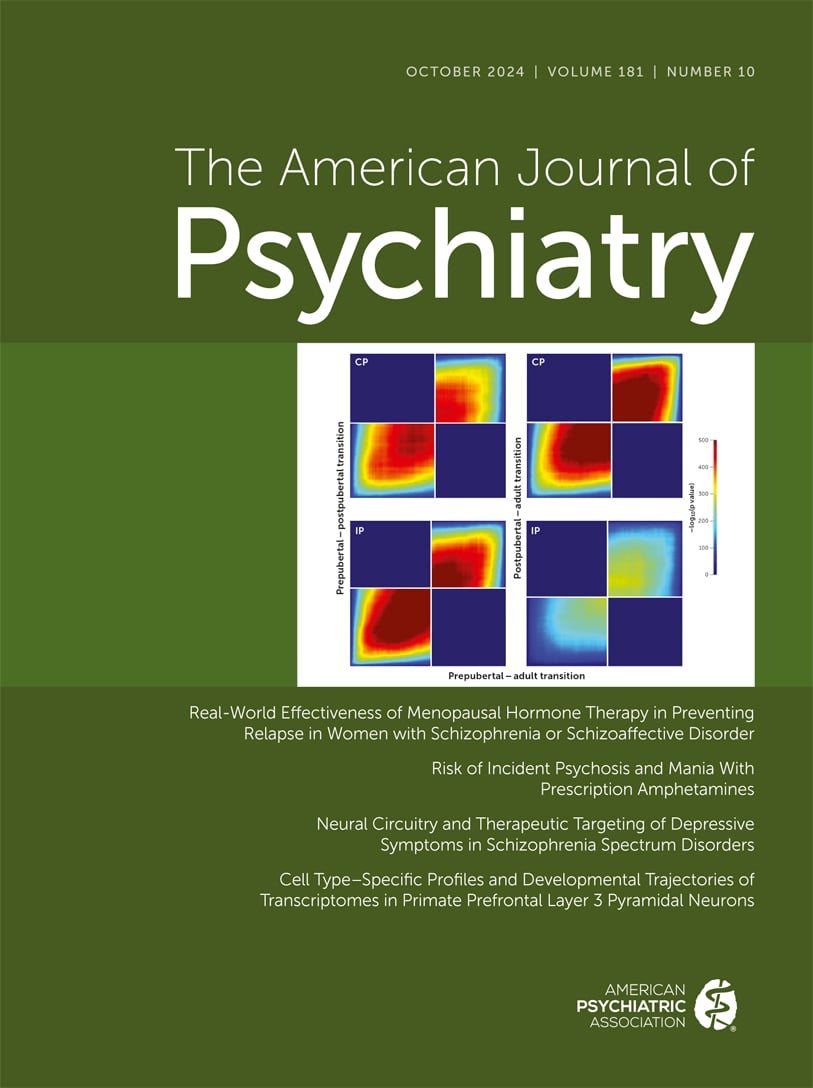American Journal of Psychiatry
- Volume 126
- Number 10
- April 1970
Article
Publication date: 01 April 1970
Pages1389–1396Four interrelated studies of heroin addicts applying to a methadone maintenance program elicited data on the "typical" patient admitted to the program, a comparison between addicts who were admitted and those who were not accepted to it, and variables ...
https://doi.org/10.1176/ajp.126.10.1389Publication date: 01 April 1970
Pages1397–1403Two groups of psychiatric residents participated in an educational evaluation study. Thirty-four residents were given a televised course in neurology and psychotherapy; a "live" teacher instructed 19 other residents in neurology and psychiatry. Both ...
https://doi.org/10.1176/ajp.126.10.1397Publication date: 01 April 1970
Pages1404–1413The authors trace the clinical use of the term "neurasthenia," which began 100 years ago, present theories explaining its etiology, and describe its treatment. The term has remained in use in some European countries including France and Russia, but has ...
https://doi.org/10.1176/ajp.126.10.1404Publication date: 01 April 1970
Pages1414–1420The author believes that the killing of a newborn baby is a separate entity from other filicides, differing in regard to the diagnosis, motives, and legal disposition of the murderer. Whereas most filicides are committed for "altruistic" reasons, most ...
https://doi.org/10.1176/ajp.126.10.1414Publication date: 01 April 1970
Pages1421–1429As consultants to the Los Angeles Police Department, the authors designed and developed a human relations training program for new recruits and officers returning to the police academy for further in-service training. Special emphasis is given to ...
https://doi.org/10.1176/ajp.126.10.1421Publication date: 01 April 1970
Pages1430–1436The author describes a program at the opposite pole of the traditional psychiatric clinic in that it renders service to all applicants, and without delay. He observes that immediate service is more important to patients from the lower social classes than ...
https://doi.org/10.1176/ajp.126.10.1430Publication date: 01 April 1970
Pages1436–1443The authors undertook to establish a small, service-oriented psychiatric program in a disadvantaged minority community. Thefr experience in independently negotiating this psychiatric program with community leaders is described, and the resistances ...
https://doi.org/10.1176/ajp.126.10.1436Publication date: 01 April 1970
Pages1444–1454Three storefront neighborhood service centers were set up to serve a disadvantaged area in New York City as part of a community psychiatric service. The first two years of their full operation are assessed in terms of who used the centers and why. Clients ...
https://doi.org/10.1176/ajp.126.10.1444Publication date: 01 April 1970
Pages1455–1460Home visiting in a black urban ghetto appears to be both safe and feasible. Patients who are unmotivated and isolated can frequently be helped. Home visiting can enhance motivation, improve the patient-therapist relationship, and facilitate treatment with ...
https://doi.org/10.1176/ajp.126.10.1455Publication date: 01 April 1970
Pages1461–1467Group activity and action-oriented therapeutic programs without the "psychiatric" label, particularly those that link meaningful work, compensation, education, and social competency, appear to offer great potential for use in mental health programs in the ...
https://doi.org/10.1176/ajp.126.10.1461Publication date: 01 April 1970
Pages1467–1472The author describes her period of training as a mental health assistant and her current work with individual patients, home visiting, child and parent groups, and the homemaking service she is developing at the Temple University Community Mental Health ...
https://doi.org/10.1176/ajp.126.10.1467Publication date: 01 April 1970
Pages1473–1479Since October 1966 the Temple University Community Mental Health Center has engaged in selecting and training area residents, without the usual academic credentials, to become primary therapists in psychiatric clinical settings. The six-month training ...
https://doi.org/10.1176/ajp.126.10.1473Publication date: 01 April 1970
Pages1480–1486The new careers program of the Harlem Rehabilitation Center seeks to develop new professional, paraprofessional, and patient-client roles to meet the needs of chronically ill persons, to broaden the mental health field, and to alter conditions that may ...
https://doi.org/10.1176/ajp.126.10.1480Publication date: 01 April 1970
Pages1493–1497The authors describe a measurement of 24-hour adenosine 3',5'-monophosphate (AMP) excretion in patients with affective disorders. Manic patients were fbund to have greater cyclic AMP excretions than normal controls. Severely depressed patients had lower ...
https://doi.org/10.1176/ajp.126.10.1493Publication date: 01 April 1970
Pages1498–1504The author discusses various approaches to halfway house operations, including the emergence of a philosophy arising from an experimental project in England and the subsequent establishment of a halfway house organization. She reviews problems encountered ...
https://doi.org/10.1176/ajp.126.10.1498Publication date: 01 April 1970
Pages1504–1508The authors studied the menstrual histories of 200 patients who had sought psychiatric help in order to determine the phase in which they came for help. The results demonstrated that the menstrual period, the premenstrual phase, and the midcycle intervals ...
https://doi.org/10.1176/ajp.126.10.1504Past Issues
View Issues Archive
Vol. 182 | No. 1

Vol. 181 | No. 12

Vol. 181 | No. 11
